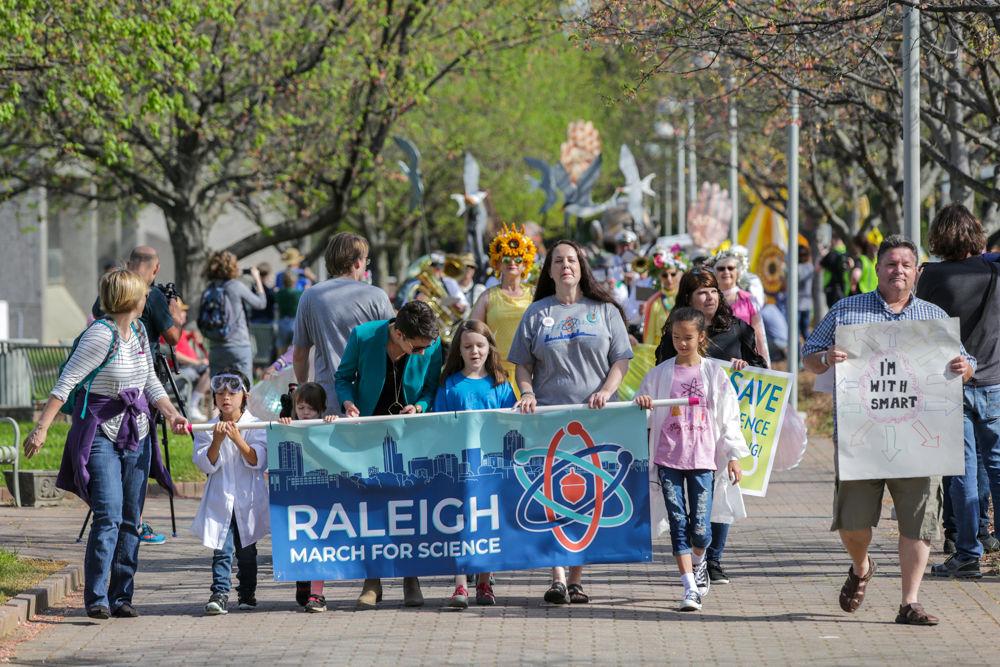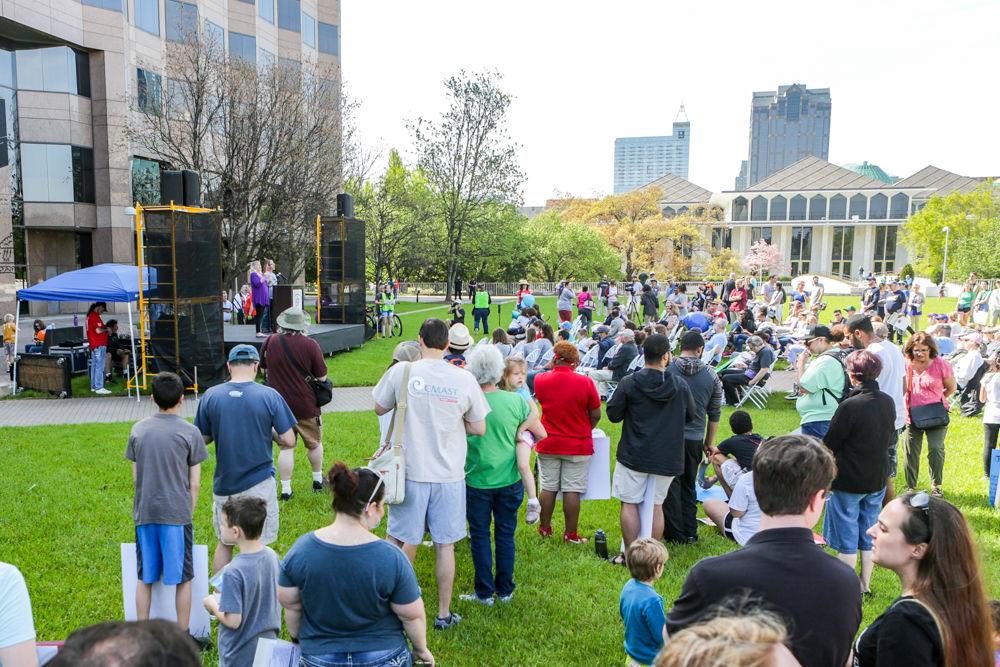The second annual March for Science focused making the subject of science not only interactive, but sought for a recognition of the intersections of science and serving citizens of the planet.
The march was held at Halifax Mall in Downtown Raleigh and was focused on finding the intersections science has on individuals’ day-to-day lives. The goal of the event was to show the public that science is not a partisan issue and policies should be based on evidence, not opinion.
Brian Malow, a “Science Comedian,” an emcee and one of the event organizers stressed that science is not something that needs to have opposition, because it only works for the safety and prosperity of the public. Malow also said that there are issues in how science is approached from many areas, not just through the government.
“It’s not about attacking our government,” Malow said. “It’s also reminding the scientific community that it has to do a better job of being diverse and inclusive and doing a better job of reaching out to people, public engagement. It’s addressed to politicians and the government, it’s addressed to the scientific community, it’s addressed to all of us to take part.”
Diversity was a key factor in this year’s march as well. Organizers focused on finding speakers that used evidence from studies, experiments and experience to advocate for policy changes. Many speakers discussed the importance of research in terms of gaining the knowledge needed to approach problems in society such as climate change, decline of biodiversity, and even gun control.
Matt Gallovic, a post-doctoral research assistant at UNC-Chapel Hill, said that funding for research from the government allows researchers to delve into questions that are still unanswered or search for effective solutions to problems that are affecting the day-to-day lives of individuals.
“I think working in academic research settings, I think it’s important to have the federal funding to back the work that we’re doing,” Gallovic said. “And, for the public to realize that a lot of the science and technology that they are exposed to day to day really starts in the laboratories and the settings that we’re working in, so to really continue building that foundation moving forward.”
North Carolina state Sen. Jay Chaudhuri attended to show his support to the people who want to see evidence-based policymaking. Chaudhuri said that in his time in the General Assembly, he has found it difficult to enact that caliber of policymaking due to party affiliation, specifically referring to Jordan Lake cleanup methods.
“I’ve pushed for evidence-based policies that are made in the General Assembly,” Chaudhuri said. “Unfortunately, this Republican General Assembly has really supported policies that are not based on science, the best example is the use of untested technology in cleaning up Jordan Lake, this General Assembly over the last few years has used untested technology in cleaning Jordan Lake that clearly does not work, in spite of the fact that the scientific community has voiced concerns about that.”
Chaudhuri said that the issue is important to him because he wants to keep the planet safe for his children and generations to come.
“The most personal aspect of it for me is the fact that my wife and I take our two children down to the coast every year and the concern about rising sea-levels and the fact that we may not have the coast we do today,” Chaudhuri said. “The coastal sea level is rising and that’s a treasure that we have here in the state and that’s something that we want to pass to our children.”
Hailey O’Quinn, a first-year studying genetics, attended the event hoping to hear more from people within the scientific community as well as to be heard by policymakers who have the potential to enact legislation.
“I believe it helps the public’s voice be heard and it’s just a way to rally together and know that there are other people like you out there that are standing for the same things that you believe in,” O’Quinn said. “I would love for legislators to hear our voices and to see us out here to see what we stand for. If nothing comes of that, we know we have each other and will continue to stand for what we believe in.”
Members of the public listen to Brian Malow, a science comedian and emcee for the rally at the Raleigh March for Science on Saturday in the Halifax Mall in downtown Raleigh. The March invited people to come and learn at various vendor and activity tables as well as listen to speakers and performers at the concluding rally.









